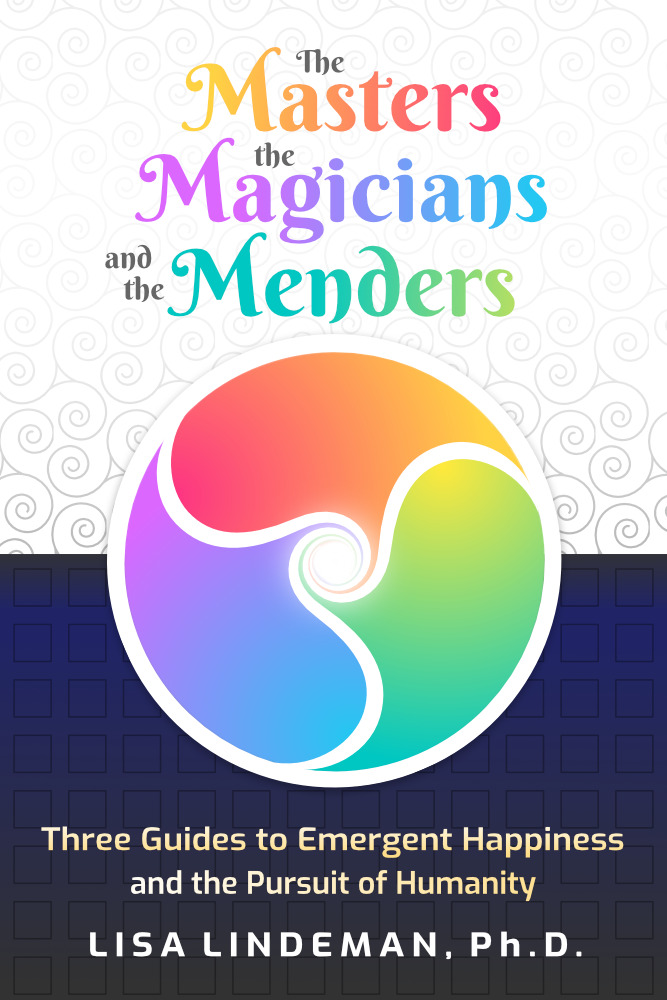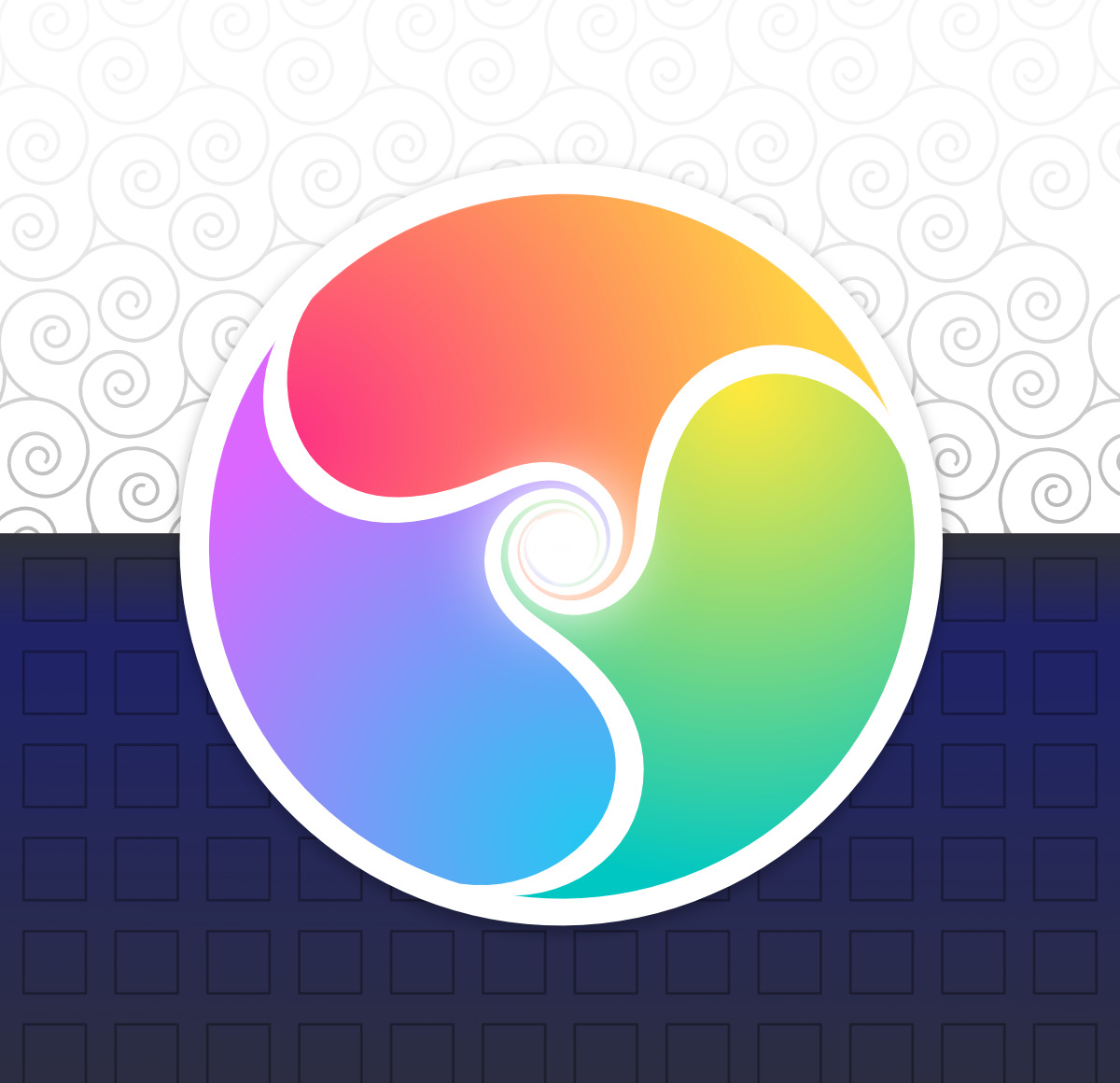
A Forthcoming Book Explores What We Genuinely Need
The Masters, the Magicians, and the Menders:
Three Guides to Emergent Happiness and the Pursuit of Humanity
If you are disillusioned with oversimplified, cookie-cutter, empty, feel-good, bumper-sticker platitudes on happiness like the line from Peter Pan, “Think happy thoughts,” this book may resonate with you. The maxim that “happiness comes from within,” for example, is small comfort after the death of a loved one, the loss of a job, or a cancer diagnosis. An effective approach to emotional suffering and the pursuit of happiness must reflect the complexity of our richest emotions and, at the same time, simplify that complexity in practice. The purpose of this book is to change the way we think about our search for happiness, and more importantly, how we respond to mental and emotional anguish, in ourselves and in one another.
I am currently accepting beta readers for this book. By becoming a beta reader, you will:
- Get chapters in advance.
- Receive a free, printed copy of the final book.
Please contact me if you would like to be included or follow me on Bluesky for updates.
Draft Introduction
The book, The Masters, the Magicians, and the Menders, is for people at the end of their rope, emotionally speaking. If that’s not you, read with an open mind or return later to this text. When everything you’ve tried has failed, when you reach a breaking point, a portal opens. Another world becomes visible. To anyone else, this other world looks no different than where they stand. Something must die inside of us for the way to open.
A few prerequisites for the reader: You must know that people can suffer through no fault of their own. You must know that there is not always a solution to every problem. You must have recognized by now that many apparent, prevailing pathways to healing and happiness may make sense in their idealized form but fail in practice. You are ready to see these pathways for what they are, stones that will never produce water (or blood, as the odd saying goes) no matter how much we squeeze. Meanwhile, genuine sources of healing and happiness may feel like flowers growing in the cracks of a paved road or puzzle pieces from the wrong box. The problem is not a missing piece but something deeper, something within and all around us that forms the invisible foundation of our efforts to be truly happy and yet ensures those efforts always eventually fail.
We live in a civilization that makes it difficult if not impossible for some of us to get our basic needs met. From poverty and war to social isolation, bereavement, financial loss, and everyday cruelty, the understandable result is emotional pain and suffering. These conditions hurt us deeply.
To those suffering, however, modern Western society applies an additional burden—a personal responsibility for halting the pain and feeling happy regardless of one’s constraints. Failure is disparaged or labeled as disease. For enduring sadness, worries, anger, frustration, shame, or fear, in all likelihood, a drug or medical treatment is not what you truly need. You don’t need to think positive or clear your aura. You don’t need any clever strategy or life hack. You need what we all need as humans living on this planet: safety, security, belonging, connection, dignity, respect, appreciation, freedom, adventure, choice, power, purpose, meaning, and love. You need a world that fulfills these basic emotional needs.
Chances are you have gone so long without one or more of these vital elements that you scarcely recognize your pain as a sign of their absence. You have real needs, and when they are not met, hurting is the most natural response in the world. What can we do to ease emotional pain and suffering when the causes originate in the world around us, and although we have some influence, those causes lie beyond our control?
I will start where we are, with the way Western science has approached suffering. This approach is characterized by reductionism, which is just a fancy word that means trying to understand complex things by breaking them down into their simpler parts—like trying to understand a car, for example, by taking it apart and studying each piece. Each piece is studied in isolation and considered separate from the observer. You can learn a lot this way, but you can also miss a lot.
For centuries, the aim of Western science has been to discern the laws of nature in order to predict what happens to us and ultimately exert control over it. This aim of control is woven throughout psychology and the social sciences in general. I feel a deep reverence for Western science, but its applications to human suffering have produced mixed results, to put it mildly.
After examining the causes of happiness and emotional well-being through the lens of Western science, where my own story begins, I’ll explain where that has gotten us. An overarching ideal now steers all our endeavors, that each individual must gain personal control over their own happiness and well-being and choose happiness at will. This ideal of happiness on command is a myth that has shaped our culture and embedded itself in us so deeply that it colors everything we think and do. You can see it not only in psychology but in politics, even in religion and spirituality. And it passes unquestioned.
We have three major strategies for achieving happiness on command. We seem to have no other options. If our needs cannot be met, and this is true for so many of us, we must attempt to ease suffering without resolving the conditions that gave rise to it—in other words, without meeting our genuine needs.
One strategy is to pursue happiness by building a life for ourselves, to control our own little pocket of this challenging reality. Whatever genuine needs we cannot meet, we find a substitute. Bingewatching dramas becomes a substitute for connection. Positioning our furniture or arranging knick-knacks on our desk exactly as we like becomes a substitute for real influence and choices in the world at large. A subscription service provides a substitute for belonging. Winning awards becomes a substitute for meaning and worth. Sweet foods become a substitute for love. For any actual problem in the world which we lack the power to solve on our own, this strategy has us aiming to just ease our own pain.
Another strategy is to produce happiness by controlling our emotions through positive thinking or drugs or some combination of the two. Some might even say this is our moral duty. We must manufacture our well-being from within and become impervious to life events, burdening no one with our personal emotions. What happens then? The pain of lost love just means you must love yourself. Professional frustration just means you must learn to handle failure. Suffering just means you need a thicker skin. Too much pain must indicate a personal shortcoming or a medical disorder. Is there any human condition we cannot think our way out of?
When all else fails, a last remaining strategy is to purge ourselves of whatever forces or personal characteristics make suffering possible, whether that be our ego, toxins, low vibrations, or human nature. This approach means suppressing or attempting to eradicate those parts of us that experience needs at all. No needs, no pain, right?
Pursue. Produce. Purge. Not only do these strategies fail to deliver happiness on command, they actually create more suffering. When these strategies fail, and we see the power of life events, including broader social and economic forces, to shape our emotional well-being and mental health, the next logical question is this: “Well what then… what am I supposed to do?”
This book is an answer to that question. What can we do, as individuals with limited powers, when we cannot get our needs met, and pain becomes a stubborn problem in itself? In the face of suffering, if we cannot change the circumstances that gave rise to that suffering, and we recognize our needs as valid, what are we left with?
The only other option, it seems, is simply to endure the pain of a broken world as we do what we can to make life better. This is hardly an answer. As an individual, your powers are limited, but you suffer just the same. The experience of grief, fear, depression, despair, or any other overwhelming emotion naturally provokes a search for something to ease the pain. If you’ve suffered quite a lot, that search can become a lifelong endeavor, dominating much of what you think and do. It certainly did for me.
The purpose of this book is to share an alternative. We do not need more strategies. We do not need yet another “secret” to happiness. The heart of our challenge is not a lack of right answers but a lack of right questions. The challenge lies in our underlying mythos, the lie of happiness on command. This mythos forms the stories behind our struggles.
In this book, you will not find crafty strategies to guarantee personal happiness. Be assured, however, that you will not find rallying cries to fix all of the world’s problems either. Instead, my hope is that you will find a far more fulfilling path forward that only becomes visible when we deeply question our hidden assumptions about the pursuit of happiness and our approaches to pain.
The first step, however, is to understand where we get stuck. This book is a journey, a series of pivotal transformations in thinking which must unfold in order. To approach emotional suffering, happiness, and life on Earth in radically new ways, we must recognize and let go of the old ways first.
We have lived with the “happiness on command” mythos for generations. The only thing that will dislodge it and help us create the conditions for real happiness is a new (or renewed) mythos, another framework of stories about our world and our place in it.
The Masters, the Magicians, and the Menders is a mythology, narrative, and symbol-driven framework for approaching happiness and emotional well-being in a fundamentally different way. This framework is rooted in ancient wisdom and, at the same time, supported by empirical research. Its aim is to induce a shift in how you think about happiness and what you do about suffering.
The Masters, Magicians, and Menders represent figurative guides—events, individuals, information, ideas, places, and forces in your life that serve a special purpose. Each guide has their own sphere of influence. The Menders are concerned with what happens to us, or our living conditions. The Magicians are concerned with our thoughts and perceptions, or cognition. The Masters are concerned with our awareness and focus, or consciousness.
Before introducing the guides, I will offer a conceptualization of happiness not as a personal possession under our command but as an interpersonal experience that unfolds as a result of countless, interacting causes across time and space. Our well-being, in other words, does not arise in isolation. What this means is that our well-being has causes that span the globe and fill our timeline. Even if you are sitting alone in your home, your well-being is influenced by factors both within and far beyond your home. We cannot examine the happiness of one person as though it arose in a vaccuum. More importantly, we cannot gain personal command over an interpersonal process. These causes are intertwined like currents in a river. The recent popularity of complexity science and systems thinking is profoundly relevant. To put it succinctly, happiness is emergent.
I will not just geek out on new science, however. If the ideal of happiness on command leads to clever but ineffective strategies, where does the reality of emergent happiness lead us? To the Masters, Magicians, and Menders. The defining feature of these guides is that they offer a way to navigate the complex system in which our happiness emerges.
The three guides are just the beginning. Crucially, all three guides function together in synergy. Synergy occurs when multiple forces combine to achieve more than any single force could accomplish alone. To understand synergy, imagine three notes played on a piano, one after the other. Now imagine these three notes played together. The simplest chords in music are called triads. When three notes are played together, the result is an experience of harmony that we could scarcely imagine upon hearing only each note alone. The Masters, Magicians, and Menders combine to influence our well-being in unimaginable ways.
This synergy profoundly transforms how we experience and respond to our basic emotional needs. By following the Masters, Magicians, and Menders, we experience something unexpected. Ordinarily, we experience our needs as met or unmet, fulfilled or frustrated, or somewhere between the two extremes, between happy and sad, content and angry, calm and afraid. The harmony of Masters, Magicians, and Menders adds another dimension, a third state which encompasses and expands upon our existing experience. The result is truly magical.
Those who discover how to follow the guides and navigate the turbulent seas in which happiness emerges have one quality in common. They do not pursue happiness on command—they pursue humanity. They understand the paradox underlying our pursuit of happiness, that it actually creates more suffering. They also understand that we win, strangely enough, not by struggling for our own personal gain but through generosity of spirit and shared humanity. These are the individuals who have learned what is meant by heroism.
Humanity has countless tales of ordinary people becoming heroes, but the deeper meaning of these myths can get lost in surface details. One does not become a hero by slaying a dragon or battling an army. At the heart of heroism is a shift in how we respond to pain, both in ourselves and in others. I will describe how the essence of heroism, nascent in every person, offers the key to emergent happiness.
The journey of every true hero is defined by the guides they encounter. Heroes use the alchemy of Master, Magician, and Mender to experience inner transformation that carries over into the outer world. Importantly, our emotional needs, met and unmet, provide the spark with which these guides light a fire within us. The result of harmony among the guides, what we recognize in heroes throughout time, are our basic needs transfigured. Pain may continue to arise yet, at the same time, we discover an otherworldly fulfillment that cannot be conveyed in words, the “peace that surpasses all understanding.”
The guides are unique for each person. Your Masters, Magicians, and Menders will look different than mine. Through my own stories, however, I hope to help you discover your own guides. You will be called upon to find special sources of awareness, wisdom, and compassion that have appeared in your life. If you have faced hardship or trauma, if you’ve been overcome with fear, frustration, or heartache, your guides are everywhere, ready and waiting for the hero within you to be born.
Contact me to become a beta reader. Follow me on Bluesky for updates.

